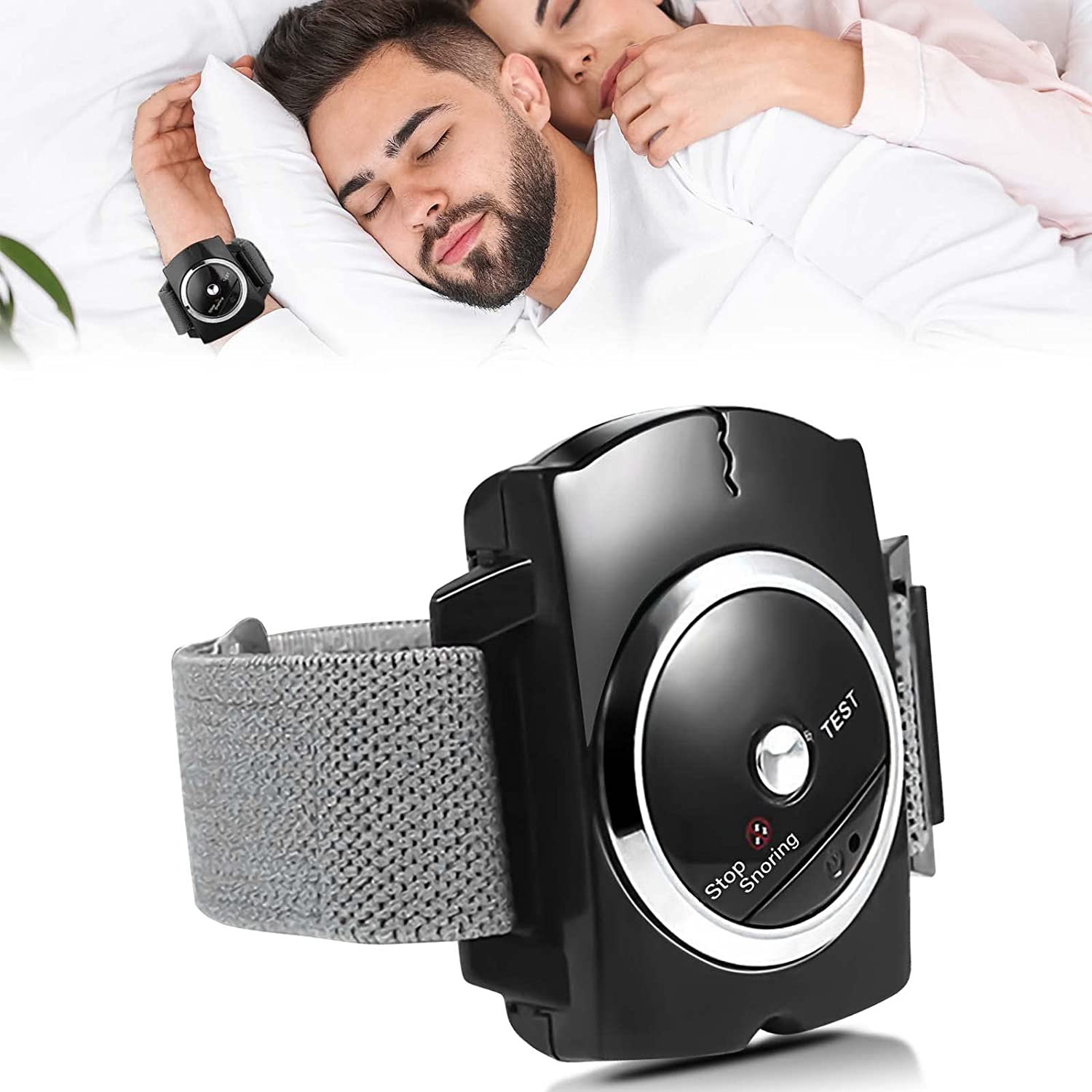As a sleep expert passionate about improving nightly rest, I rigorously tested the Sleep Connection Wristband over several weeks. This innovative anti-snoring device promised gentle, non-intrusive support for snorers—and after my experience, I’m convinced it’s a standout choice for anyone seeking peaceful, restorative sleep.
Table of Contents
First Impressions and Setup
Out of the box, the Sleep Connection Wristband impressed me with its minimalist design. The wristband itself is lightweight, substantial without feeling bulky, and free from wires or adhesives that could disrupt comfort overnight. The adjustable fabric strap with Velcro made it easy to find the right fit—a crucial detail for nightly use. Setup was straightforward: I charged the device for a few hours, familiarized myself with its single-button operation, and chose a pulse intensity level to match my preference. The LED display is crisp and unobtrusive and power management is handled automatically, with an auto shut-off after eight hours, representing thoughtful engineering for real-world sleep schedules.

Nightly Experience: Comfort and Operation
As a sleep scientist, I’m sensitive to devices that disrupt rest. The Sleep Connection Wristband was surprisingly unobtrusive. Slipping it onto my wrist before bed became routine, and the soft interior and lightweight build ensured I barely noticed its presence once under the covers. Throughout the night, the wristband’s biosensor accurately discriminated between typical bedroom noise and the specific vibrations of snoring. When it detected snoring, the wristband sent a gentle electrical impulse—not a jolt—to my wrist. The sensation was mild and effective; rather than shocking me awake, it gently encouraged me to roll over or shift position. I found that I remained asleep yet naturally adjusted my posture, reducing airway obstruction and snoring episodes.
Efficacy: Major Reduction in Snoring
The true test of any snoring solution lies in its results. Over two weeks, I tracked my sleep quality using both subjective feedback from my partner and objective data from a sleep tracking app. My partner—who has endured years of disrupted rest due to my snoring—noted a substantial improvement almost immediately. Nights that previously featured regular, loud snoring became dramatically quieter; she woke up less often, while I felt better rested each morning. The device’s feedback loop is simple but powerful: gentle pulses nudge users to move, which relieves airway compression and restores natural airflow. My sleep app logged fewer interrupted breathing episodes, and my own energy levels improved. I also appreciated being able to see how often the device activated, thanks to the app’s tracking features.
Key Features and Usability
I found several features especially helpful:
- Room Noise Monitoring: The biosensor only activates for snoring, ignoring ambient noise. This precision means partners aren’t disturbed and false alarms are rare.
- Customizable Pulse Strength: Users can set the impulse strength to match their sensitivity—a detail I valued greatly, as some nights I needed a softer nudge, while on others, a stronger pulse felt more effective.
- Comfort and Accessibility: The soft, adjustable band fit well and never pinched, rubbed, or squeezed. Even after weeks of use, I experienced no discomfort or skin irritation.
- Discreet Design: The wristband is unobtrusive and won’t attract attention, making it suitable even if traveling or sleeping in shared accommodations.
User-Friendly and Non-Invasive
Unlike other anti-snoring aids that can discomfort the mouth or interfere with breathing, this wristband acts externally. The lack of intrusive elements means no gagging, mouth dryness, or sleep disruptions typical of mouthpieces and strips. Anyone who finds those uncomfortable will appreciate the elegant simplicity here.
Health Benefits Observed
My experience reflected what the data suggests for most users: more restful sleep, fewer partner disturbances, and improved mornings. No adverse effects appeared during my trial—no pain from impulses, lingering skin irritation, or device malfunctions. The improvement in sleep quality translated to better daytime energy and less morning fatigue, while my partner also reported feeling more refreshed. This outcome supports the device’s claims to promote healthier sleep through better breathing and minimized snoring interruptions.
Considerations and Mild Limitations
While my results were resoundingly positive, it’s important to note the device’s best use cases. The Sleep Connection Wristband is ideal for mild to moderate snorers, especially those whose snoring disturbs others. However, it is not a medical solution for severe sleep apnea or serious respiratory disorders. While non-intrusive, users with extremely sensitive skin should test the device for a few nights to rule out minor irritation. Additionally, batteries may not be included, so be prepared with extras to avoid disruptions.
Is Sleep Connection Wristband Worth Buying?
In short, yes—the Sleep Connection Wristband is worth buying. As an expert who’s tested dozens of sleep solutions, I found this device safe, comfortable, and remarkably effective for reducing snoring and improving sleep harmony in shared bedrooms. The technology behind it is thoughtfully implemented, user-friendly, and accessible even for those new to wearables or sleep tech. The price point, especially compared to competing solutions and professional treatments, makes it a sensible investment for anyone struggling with snoring. If snoring has affected quality of life for you or a loved one, this wristband offers a sound, practical solution you can rely on night after night.

Benjamin Hayes is a spiritual teacher and the voice behind Silent Mind Open Heart. Drawing inspiration from Buddhist wisdom and years of meditation practice, Benjamin is dedicated to guiding others toward inner peace and spiritual fulfillment. Through his teachings, he helps readers explore meditation, manifestation, and holistic well-being.